10 Best WWE Shows From Outside The USA & Canada
Will the return to Australia for Super Show-Down live up to these events?

Aug 30, 2018
So the hype is already underway for WWE's Super Show-Down, an Australia-based supercard that will follow in the footsteps of Greatest Royal Rumble. And I for one am delighted, because instead of staggering out of bed at 9 AM that day to watch the college football pregame show, I can stagger out of bed hours earlier to indulge in some non-canon grappling. Fortunately, I have a Keurig.
In their continuous efforts to become a global superpower, WWE has left footprints in seemingly every country imaginable. WWE and major events in other countries have had a rich history, be they pay-per-views, or just simply events intended for those eyes only. And a number of those events have stood the test of time, proving memorable in one way or another.
Though the event is still a little while away, in light of Triple H's recent remarks toward The Undertaker on Raw, now is as good a time as any to examine the best WWE cards that have taken place outside of North America. Some you'll be quite familiar with, while others you may be learning about for the first time. In any event, these are the best of the best.
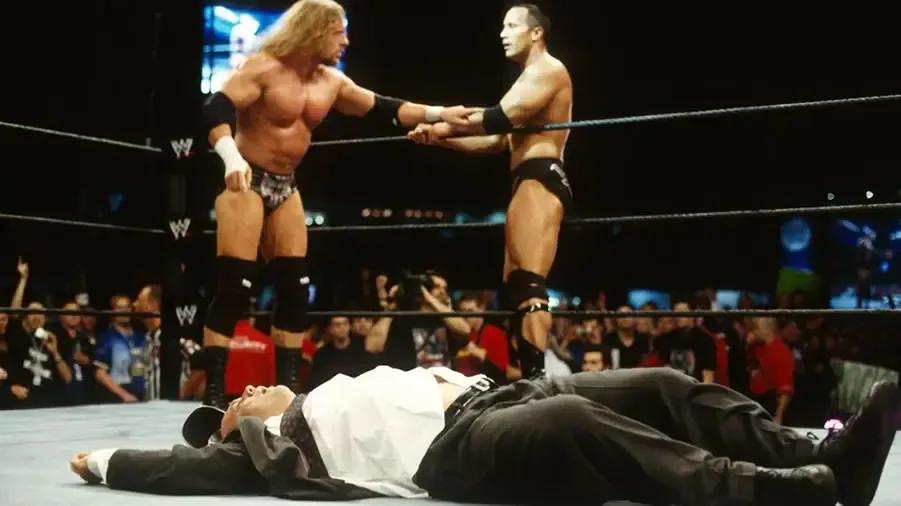
After Andrew McManus's World Wrestling All-Stars promotion demonstrated the viability of the Australian market in 2001-02, WWE ran a SmackDown-centric card in Melbourne's Colonial Stadium before a whopping 56,000 fans just two weeks before that year's SummerSlam. WWE later released a DVD of the event, which omitted three matches, including Kurt Angle against Test.
What *did* make the DVD cut was mostly good, chiefly a triple threat main event for the Undisputed Championship pitting The Rock, Triple H, and Brock Lesnar in the same match. While that was match of the night, other bouts like Chris Jericho vs. Edge, Lance Storm and Christian vs. Rey Mysterio and Billy Kidman, and Jamie Noble vs. The Hurricane boosted the event to a loftier level.

Hey, another SmackDown event from 2002. Around the turn of the millennium, WWE would run two UK-exclusive pay-per-views per year in England - Insurrextion in the spring, and Rebellion in the fall. While the shows were mostly just glorified house shows with a little glitzy oomph for the cameras, some, like this particular Rebellion, went above the accepted standard.
The Tag Team title bout, in which Chris Benoit and Kurt Angle defeated Los Guerreros, was the sort of high-octane wrestling that was becoming standard on SmackDown, highlighted by 13,000 strong in Manchester booming "WE WANT ANGLE" at every turn. Brock Lesnar and Paul Heyman's handicap match victory over Edge was another tremendous spectacle and was technically Edge's first singles "pay per view" main event. Plus, you get to see Tazz dance, so there's that.
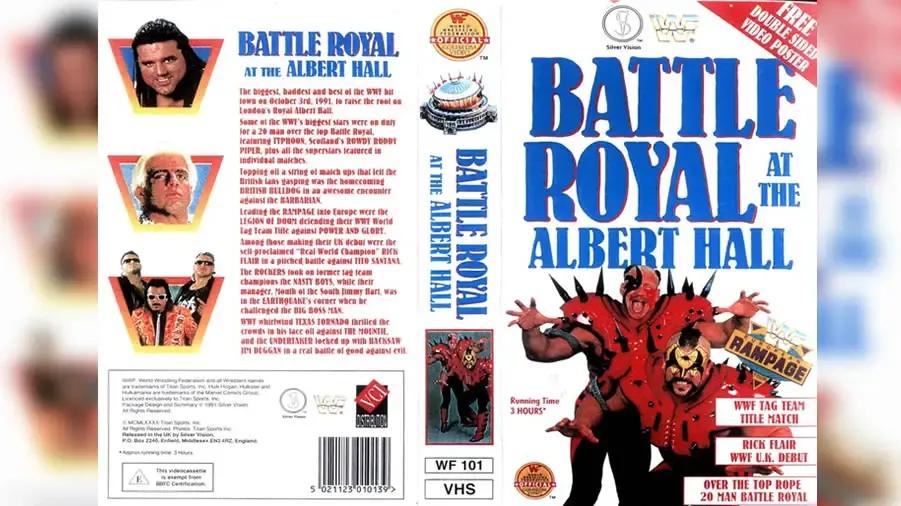
Add the Royal Albert Hall to the list of coolest distinct-looking wrestling venues of all time. Looking like a grander Hammerstein Ballroom, WWE produced quite the interesting event that would be capped off by Davey Boy Smith winning a Battle Royal at night's end, while being treated like the biggest star this side of a full-blown John Lennon resurrection.
The action admittedly tapers off a bit after two awesome matches to begin the night (The Rockers vs. The Nasty Boys, Ric Flair vs. Tito Santana), but moments throughout the night would boost the show's cool factor. Among them, Undertaker being played out to an organ rendition of his music by a Phantom-like organist, as well as the ungodly reaction for The British Bulldog in his two bouts.
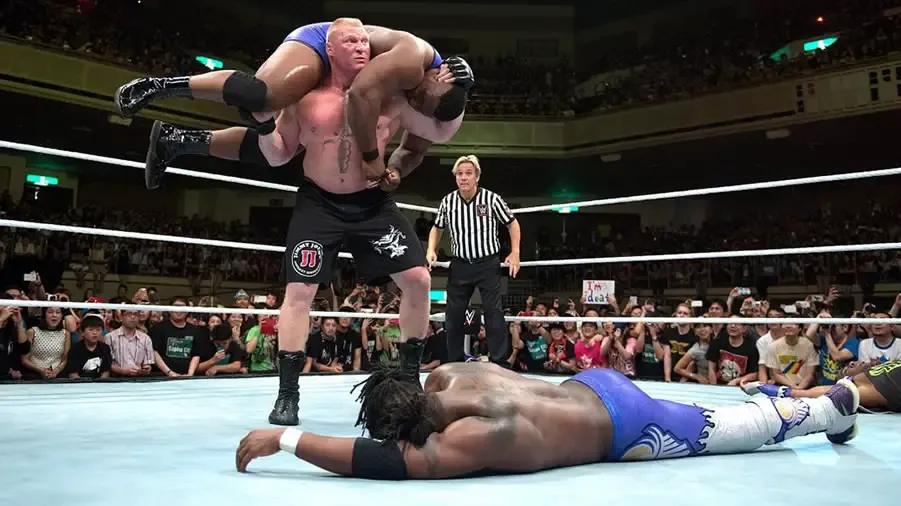
UK viewers had it a little easier taking this Network exclusive in live, seeing as it started around brunch-hour. East coast Americans like myself just said "screw it", and rolled out of bed at the same brunch time, thanks to the miracle of on-demand technology. Tokyo's New Sumo Hall played host to an event that was a little unusual, but worth a watch, no matter what time of day it was.
The top matches were Finn Balor's NXT title win over Kevin Owens, as well as an inspired clash of junior heavyweight stars of different eras, with Chris Jericho narrowly edging out Neville. Brock Lesnar's squash win over Kofi Kingston didn't quite spark the same riotous atmosphere that Vader did when he crushed Antonio Inoki three decades earlier.

In the early-nineties, WWE entered a working agreement with a start-up Japanese promotion known as Super World of Sports (SWS), co-promoting a number of noteworthy cards with the organization. The most memorable was WrestleFest, which took place just six nights following WrestleMania VII, drawing 42,000 fans to the Tokyo Dome for a card featuring a wide expanse of talent.
A few of the matches have made it onto WWE video releases, including The Legion of Doom vs. Hulk Hogan and Genichiro Tenryu, The Hart Foundation vs. The Rockers, and even a Kendo Nagasaki/Hacksaw Jim Duggan bout, which would be featured on a Coliseum Video release from the early nineties. The show is also notable for featuring the final WWE match of Demolition as a tag team, as second version Smash and Crush defeated Shunji Takano & Shinichi Nakano.
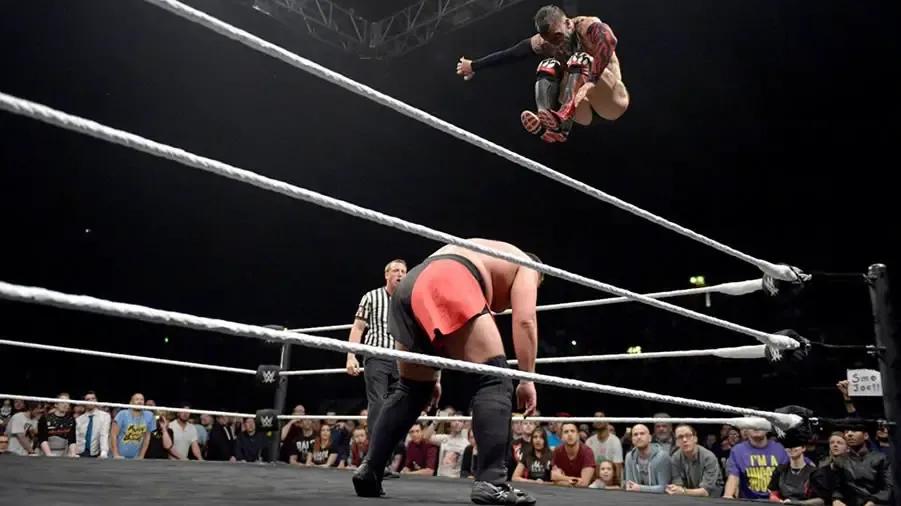
In the days before TakeOvers were riveted to some WWE main roster pay-per-view, the events were mid-week standalones, usually emanating from the brand's Full Sail home. In this instance, the NXT roster ventured across the Atlantic for a card in London's Wembley Arena, drawing 10,000 fans for a Wednesday night event with some quality action.
Most memorable was brand champ Finn Balor's vivid Jack the Ripper inspired entrance, which preceded his main event victory over Samoa Joe in an excellent match. The other title matches were of considerable goodness, with The Revival retaining the Tag Team gold over Enzo and Cass, and Women's Champion Bayley choking out Nia Jax. There have been better TakeOvers, but even a lower-end TakeOver is better than most other shows.
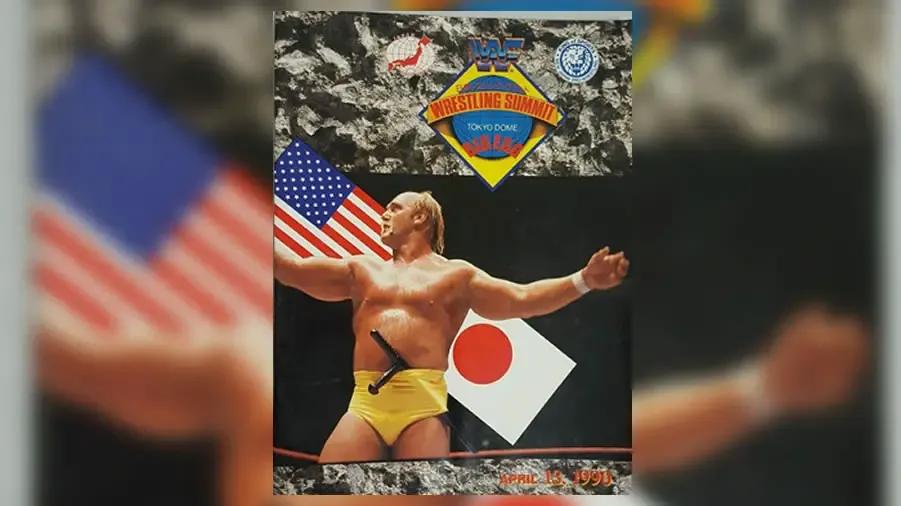
Now *here* was an ambitious show: WWE, New Japan, and All Japan pooling together some of their most recognizable stars into an event that drew more than 53,000 fans to the Tokyo Dome shortly after WrestleMania VI. The card really does read like a who's who of the time, and was absent only some of the top stars from WCW/NWA.
When your card boasts the likes of Hulk Hogan vs. Stan Hansen, Randy Savage vs. Genichiro Tenryu, Andre the Giant and Giant Baba vs. Demolition, Ultimate Warrior vs. Ted DiBiase, Bret Hart vs. Tiger Mask II (disappointing as it was), and Jushin Liger vs. Akira Nogami, you're putting together an all-star event. Hogan vs. Hansen was also a good look at Hogan outside of the usual WWE formula, as the two brawlers pounded each other in a blood-filled fracas that was an appropriate closer.
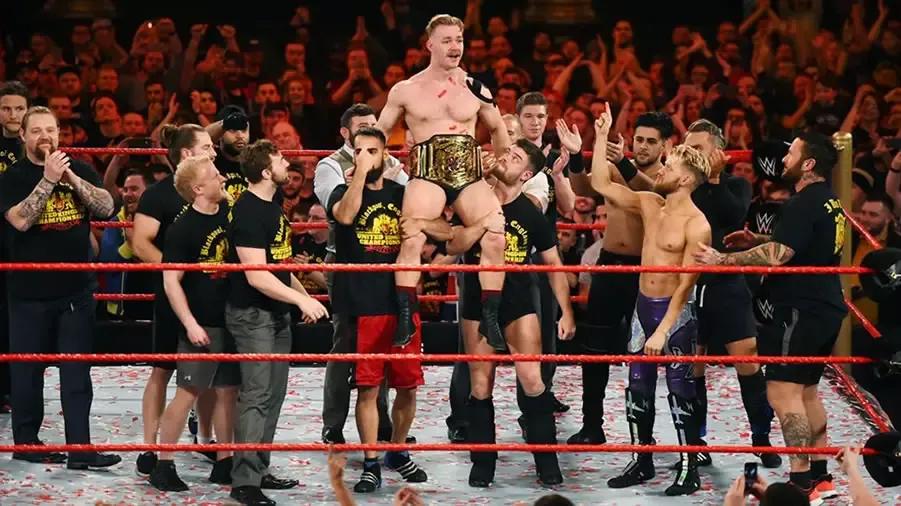
WWE's immersion into the UK pro wrestling scene has added an extra dimension to the overall product, as the likes of Pete Dunne, Tyler Bate, Trent Seven, and a host of others have captivated the minds of fans stateside and abroad for some time now. The tournament to crown an inaugural UK Champion last year was a brilliant introduction into the style, particularly for fans who were new to the wrestlers.
Dunne and Bate's final round match was a true work of art, as was Dunne's semi-final victory over Mark Andrews. Factor in a short gem of a match between Neville and the future Aleister Black (two NXT Champions of seemingly different eras), and you've got a stellar night of action that is many degrees off of normal WWE fare.

A somewhat-controversial entry, due to the rather stomach-churning finish that saw Davey Boy Smith and his family humiliated by Shawn Michaels and D-Generation X. If you can get past that bit of sourness, you're left with one of the pre-eminent WWE pay-per-views of all time, regardless of location.
Smith's loss to Michaels came at the end of a more-than-worthy main event for European title, which was preceded by a classic Bret Hart/Undertaker WWE title bout that ranks among Taker's all-time greatest showings. Midcard matches like Owen Hart vs. Vader, Dude Love vs. Triple H, and even The Headbangers vs. Los Boricuas round out a show that goes against the standard WWE mode of match composition for the time, offering a nice taste of something different. And variety is a good thing.
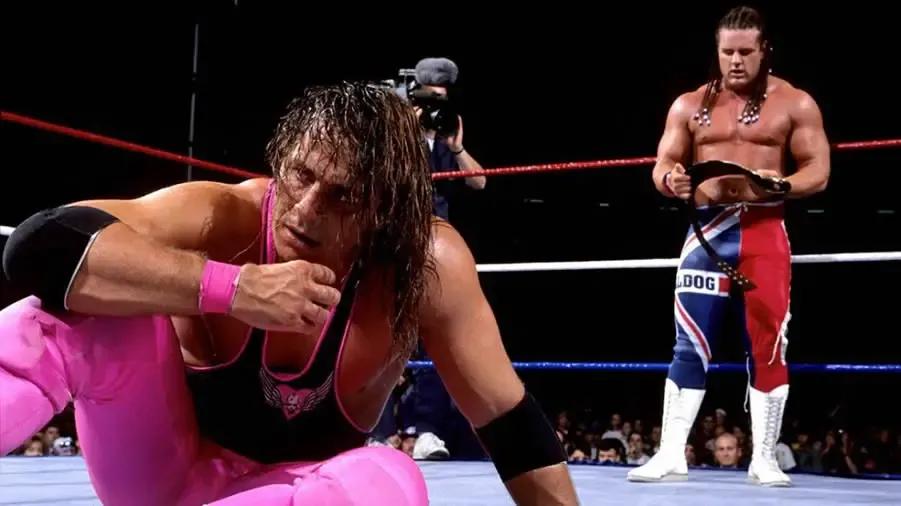
It was a sight worthy of a top-shelf WrestleMania: 80,000 fans jam-packing London's Wembley Stadium to watch countryman Davey Boy Smith challenge for brother-in-law Bret Hart's IC title. On the strength of two incredible singles matches, some have gone as far to call this the greatest SummerSlam of all time. You could debate that, but few would argue against it being the best-looking event bearing its name.
As such, Hart and Smith earns praise as one of the absolute best SummerSlam matches ever, if not A-number-one. Randy Savage and Ultimate Warrior's WWE Championship bout may have had a crappy finish, but it's only a shade or two off of their WrestleMania VII all-timer. The rest of the card ranges from solid to decent to, in some cases, bad, but the atmosphere and the two big matches boost SummerSlam 1992 into a very special realm.